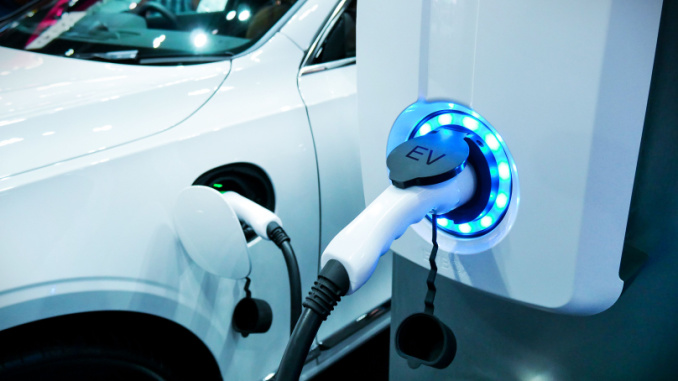
by Dr. Thomas Patterson | Aug 31, 2023 | Opinion
By Dr. Thomas Patterson |
When the notion of race-based reparations was first advanced, I didn’t take it seriously. Surely, something so costly and unhelpful would never gain traction with the American public, so why worry about it?
But on further reflection, it seems several ideas have graduated from the unthinkable to reality over the last few years in today’s America. The idea that reputable physicians would actively encourage even pre-adolescents to retard their sexual development and permanently mutilate their bodies, based on nothing more than a probably transient feeling of gender dysphoria, would have seemed absolutely bizarre not long ago.
So would the idea that schoolchildren should learn to reject the teachings of Martin Luther King and instead be taught that there were irreconcilable inborn racial differences that warranted further discrimination. Spending trillions of dollars we don’t have on unnecessary programs. Allowing immigrants by the millions to illegally breach our border. Even allowing a top government official to walk after intentionally destroying thousands of evidentiary emails during an active investigation. We can no longer count on rational thought to prevail.
Thus, the drive for race-based reparations continues to advance. Nearly every year, Rep. Sheila Jackson Lee introduces a bill calling for a commission to compile documentary evidence of slavery(?), analyze its effects and recommend ways to remedy the effects of servitude including an apology and, of course, cash.
Now others are joining the chorus. California’s Task Force to Study and Develop Reparations Proposals for African-Americans issued a detailed calculation of recommended awards. They include $13,619 for each year of residency in the state for healthcare disparities, $3,336 per year for housing discrimination, and $2,532 per year for over-policing and mass incarceration. That’s up to $1.2 million for each of the 2.3 million black residents of the state.
Determined not to be outbid, San Francisco’s Board of Supervisors unanimously endorsed a proposal to provide a $5 million payment to each black resident to compensate for past wrongs. Each would also receive forgiveness of all loans including credit cards and income subsidies for the next 250 years to bring them to the median city income, currently $97,000.
Two years ago, Evanston, Illinois became the first American city to actually pay racial reparations, $2,500 to each black resident to pay for housing improvements.
But the notion of reparations awarded to all members of a racial or ethnic group contains no guardrails to determine where the practice logically starts and stops. While reparations for specific incidents like the Holocaust and Japanese internment are easier to define and limit, abuse by and against races has been virtually constant in human history.
Slavery has been widely practiced for millennia. That doesn’t excuse it, but it does make just compensation awards more problematic. Do all the nations who practiced, or are still practicing, slavery owe compensation? Should descendants of the tribal chieftains who fueled the African slave trade by capturing and selling fellow Africans into bondage be liable? Should people whose ancestors never owned slaves have to pay anyway? Once the foolish principle is established, we’re just quibbling about amounts.
But the ultimate objection to raced-based reparations isn’t affordability or morality. It is that reparations are economically devastating to the recipients.
Think of America’s own history. Our modern relationship with the indigenous peoples was based on promises to atone for our admittedly shabby treatment of them. They were soon transformed from proud, capable human beings to highly regulated dependents who couldn’t build a bridge, provide their own housing, or obtain medical care without federal government permission and aid.
Black Americans were making significant social and economic progress until the entitlements of the Great Society in the 1960s broke up their families, robbed them of self-sufficiency, and preempted their prospects for prosperity. Many sank into dependence, criminality, and despair.
The newly proposed reparations would likely be just as toxic, killing the incentives for self-sufficiency. The greatest gift we could give to lagging minority groups would be to double down on equipping them with the tools to fully participate in the American dream.
Helping them to rebuild families, schools, and social structures, although difficult, would be helpful. Reparations and more entitlements are the road to nowhere.
Dr. Thomas Patterson, former Chairman of the Goldwater Institute, is a retired emergency physician. He served as an Arizona State senator for 10 years in the 1990s, and as Majority Leader from 93-96. He is the author of Arizona’s original charter schools bill.

by Dr. Thomas Patterson | Aug 18, 2023 | Opinion
By Dr. Thomas Patterson |
Critics of Donald Trump once counted tax evasion among his many faults. But it turned out that he wasn’t breaking any tax laws. He was simply utilizing the complex web of exemptions, deductions, and other rules available to reduce his tax bill to near zero.
It would be hard to imagine a worse tax system than our federal government’s. It is based on taxing economic productivity, which in a free-market system, benefits us all. Politicians use taxation not only to generate revenue but to pursue a grab bag of policies ranging from welfare programs to “climate change,” home ownership, and subsidization of state and local taxes.
The tax code is hopelessly complex and expensive to operate. Individuals and businesses spend around $37 billion and over 3 billion hours annually in tax compliance, up to 10 times as much as taxpayers in other wealthy countries.
Phil Gramm was right 25 years ago to suggest that the best option would be to scrap our entire tax system and replace it with a single national sales tax. He didn’t succeed, of course, but the concept is so sound it still remains active in academia, think tanks, and government white papers.
Representative Buddy Carter introduced the Fair Tax Act of 2023 in Congress this year and was promised a floor vote. This bill would eliminate all personal and corporate income taxes, payroll taxes for Medicare and Social Security, estate and gift taxes, as well as the Internal Revenue Service itself.
Instead, there would be an effective 30 percent consumption tax, but households would get a tax rebate check each month adjusted for family size and income. The rebate would have the effect of exempting all purchases up to the poverty line from taxation. The tax rate and rebates could be adjusted to make the tax revenue neutral and roughly as progressive as our current structure.
Still, Democrats and their media buddies immediately attacked the proposal as “tax cuts for the rich, period” and a “Republican dream to build a wealth aristocracy.” Even the Wall Street Journal criticized it on political grounds, worrying that even though it “made sense,” it might hand Democrats a juicy campaign issue.
But its critics, perhaps intentionally, misunderstand the bill. Americans would not on the net pay more taxes. Nor would low-income earners be punished. The tax burden wouldn’t grow but only be redistributed.
Outsized deductions and other tax shelters would vanish, meaning the ultra-wealthy and the big spenders would pay taxes more appropriate to their incomes. Savers would obviously benefit. Investments could grow tax-free.
Some critics argue that tax evasion would be a problem. But that’s true of any tax scheme, including the one we have now. The IRS estimates that Americans underpay their taxes by $500 billion annually, in addition to the billions of fraudulent claims in programs like the Earned Income Tax Credit.
The Fair Tax wouldn’t have to be perfect to be more efficient and less cumbersome than our current system of self-reporting buttressed with audits. Avoiding the stressful hassles with the IRS would be a welcome relief to many Americans.
A more substantial concern is that future legislatures may try to augment the consumption tax by adding back income and other taxes so that we end up with the worst of both worlds. A constitutional amendment prohibiting an income tax would be preferable. Otherwise, careful consideration must be given to rigid self-activating safeguards to protect taxpayers.
The Fair Tax has never passed because of political opposition from groups that have too much to lose by giving up the status quo. Yet if government wants to subsidize things like housing, electric vehicles, or healthcare, it would be more transparent and accountable to appropriate the money rather than disguising it as a tax deduction or credit. Likewise, if Americans want to financially support charitable causes, and they do, they should do it with their own money, not a partial government subsidy that comes with strings attached.
Tax reforms are always opposed by those who benefit from the current structure. But the Fair Tax would be a far more equitable and transparent way to fund government. It deserves a look.
Dr. Thomas Patterson, former Chairman of the Goldwater Institute, is a retired emergency physician. He served as an Arizona State senator for 10 years in the 1990s, and as Majority Leader from 93-96. He is the author of Arizona’s original charter schools bill.

by Dr. Thomas Patterson | Aug 4, 2023 | Opinion
By Dr. Thomas Patterson |
“The Department of Education shall terminate on December 31, 2023.” If you’ve read this far, you have completed HR899, introduced by Rep. Thomas Massie.
Abolishing the DOE isn’t a new idea. The department was created in 1979 by the Carter administration, fulfilling a campaign promise to the NEA, the teachers’ union, which in turn gave him their first ever presidential endorsement.
But skepticism over the department was present even at its inception. The bill passed by just four votes in a heavily Democratic House. Ronald Reagan, always concerned about over-centralized power, immediately campaigned to unwind it. Several Republican education leaders since have endorsed its elimination.
1979 hardly marked the beginning of a glorious new age for American education. Per pupil spending on education since then has more than tripled, inflation adjusted, but there is little to show for it.
Achievement scores have been stagnant and still lag many of our peer nations in the developed world. The racial gap in academic achievement persists in spite of the department’s high-profile efforts. The bureaucrats and interest groups receiving the funding are fine with it, of course, but for the rest of us, it hasn’t accomplished much.
The DOE isn’t really designed to make an impact. It doesn’t establish or approve a curriculum. It doesn’t operate one school or educate one student. It doesn’t administer or create tests. It doesn’t establish standards for colleges and universities. We wouldn’t want it to do any of those things, but it naturally raises the question: is the DOE needed at all?
The department has over 4,000 employees who do research and write policy papers on education that are read mostly by each other. They administer the beleaguered student loan program and federal aid for education. Over 500 workers toil in the Office of Civil Rights.
Senator Joni Ernst notes that 94% of the DOE‘s staff were deemed nonessential during a government shut down. As one official summarized, “it really is just a grant making entity with a huge bureaucracy.”
Americans rightly respect the importance of education and are apprehensive about failing to support anything labeled “education.” The department doesn’t stir public animosity like Justice, Homeland Security, and other cabinet departments often do.
J. Luke Wood, president of Sacramento State University and a former professor of education at San Diego State University, asserts the attempt to eliminate the DOE has nothing to do with federalism or any legitimate substantive argument. No, the real motivation is…racism!
Yes, those darn Republicans are at it again, advancing unrelated pseudo-arguments to provide cover for their race hatred. They are engaging in “racelighting” i.e., racial gaslighting which is an “act of psychological manipulation where people of color receive racial messages which distort the realities and lead them to second-guess themselves.”
Opponents claim HR899 is just an attempt to shape curricula that teach a “fairy tale” history, omitting the ills of slavery as well as ignoring Jim Crow, miscegenation, and redlining. Furthermore, they say it is purposely intended to strip civil rights protections for minority students.
Yikes! Just being around Republicans, you would never imagine that they are such over-the-top bigots. Then again, maybe it is Professor Wood and his ilk who are the racial dividers, seeing racism as the explanation for nearly everything.
If they are so concerned about the civil rights of minority students, why not embrace school choice and charter schools? These reforms have demonstrated their capability to actually improve educational outcomes and lift children out of poverty.
Some see HR899 as a quixotic endeavor. Maybe it is. Bureaucracies, whatever their failings, are skilled, aggressive, and usually successful at defending themselves.
But there is one overarching reason why the DOE needs to go. We can’t afford it.
America is in big trouble financially. We have normalized intergenerational fiscal theft to finance so much wasteful, politically motivated spending that we are now $32 trillion underwater. Interest on the debt is crowding out other priorities and $50 trillion is in view. Still the Biden administration, with an election looming, continues to propose yet more new spending programs.
Instead, we should be desperately seeking out nonessential expenditures that could be cut without any significant harm. The Department of Education is an ideal place to start.
Dr. Thomas Patterson, former Chairman of the Goldwater Institute, is a retired emergency physician. He served as an Arizona State senator for 10 years in the 1990s, and as Majority Leader from 93-96. He is the author of Arizona’s original charter schools bill.

by Dr. Thomas Patterson | Jul 21, 2023 | Opinion
By Dr. Thomas Patterson |
Electric vehicles have become the centerpiece of the plan to ward off climate change by drastically reducing greenhouse gas emissions. The Biden administration seems to feel that if we can just get people to plug in their cars to a non-emitting electrical socket instead of filling up with carboniferous fossil fuels – voila! By 2050 we’ll be at zero-carbon emissions, no problem.
That would be a nice world, but it’s not the one we live in. In fact, EVs check virtually every box indicating an unrealistic policy bound for failure.
For starters, personal vehicles aren’t even the right target, despite the claim of the Union of Concerned Scientists that they are a “major cause of global warming.” The New York Times agrees that cars are a “major driver of climate change.”
Really? Transportation globally accounts for 20% of total emissions, but cars and vans are only 8% while personal vehicles, because they accumulate less mileage, generate just 3% of all emissions. But the U.S. owns just 12% of the world’s cars. That means that just 0.36% is the global carbon reduction we would achieve if every American car were electrified and if all carbon emissions were thereby eliminated.
But it gets worse. EVs don’t necessarily reduce carbon emissions at all. Energy must still be produced to power them, like any other car. It just happens in a different location.
The net emissions of an EV depend on how its electricity is generated. Since fossil fuels still generate the bulk of our power, many EVs are a little more than carbon neutral. Moreover, the manufacture and eventual disposal of the required batteries are intensely energy consuming.
California, New York, and other states plus the EU have promised to be fully EV by 2035. But these states are already straining under the increased demands of a power-hungry world even without EVs.
The task of fueling all these EVs would be overwhelming. According to one estimate, achieving a “net-zero economy” for New York would require building 2,500 giant, 680-foot tall turbines, which would hopefully generate electricity 40% of the time.
The turbines would require 110,000 tons of copper alone, for which 25,000,000 tons of copper ore would have to be mined and processed, after removing 40,000,000 tons of overlaying rock. Then, birds, bats, and endangered species would be regularly massacred by the millions. And that’s only for one state.
The unwelcome fact is that sustainable fuel sources have received massive subsidies for years to “help them get started.” Yet wind, solar, and other minor sources of energy still produce just 12% of global demand and have yet to demonstrate the potential to replace fossil fuels in the future as the main source of energy for EVs.
EVs are more popular with green activists than with drivers. They accounted for just 5.8% of all auto sales last year, despite being heavily subsidized. Buyers benefit from generous production subsidies, from fueling subsidies, from special driving privileges such as use of HOV lanes, and are unfairly excused from participating in the fuel taxes which fund road construction and repair.
Yet most consumers still find the extra cost of an EV is not justified. Automakers, with the notable exception so far of Tesla, are beginning to feel the pinch. Many were bull rushed into EV production by government pressure and subsidies as well as fear of getting left out of the presumed coming boom market.
But now Ford, for one, expects to lose $3 billion on EV production this year. Volkswagen is cutting back on EV production as well, stating that “we are noticing customer reticence quite vehemently in the electric world.” It’s going to take a mountain of subsidies and mandates to get anywhere near 100% EVs by 2035.
There are other big problems too. The batteries average 1,000 pounds or so in weight, resulting in excessive wear to roads and bridges. Collisions are more damaging – for the other guy. There are not nearly enough mines, metals, and minerals on earth to supply EV battery manufacture. EVs are an ineffective solution to an exaggerated problem. We can only hope environmental alarmists come to their senses before their unrealistic dreams bankrupt us all.
Dr. Thomas Patterson, former Chairman of the Goldwater Institute, is a retired emergency physician. He served as an Arizona State senator for 10 years in the 1990s, and as Majority Leader from 93-96. He is the author of Arizona’s original charter schools bill.

by Dr. Thomas Patterson | Jul 9, 2023 | Opinion
By Dr. Thomas Patterson |
American school children are instructed that the late 19th century, the Gilded Age, was dominated by “robber barons” who made great fortunes creating monopolies that exploited the poor and middle classes.
Howard Zinn‘s best-selling textbook, which introduced generations of Americans to their own history, informed them that “ordinary people who lived through the Gilded Age… experienced tremendous hardships and losses… While they got poor, the rich were getting richer.” Another noted economist concurred that “the poor grew helpless, the middle class got swept away.”
But let’s look again. In fact, by the numbers, it was a golden age for American workers.
As Phil Gramm and Amity Shlaes documented in the Wall Street Journal, between 1870 and 1900, the national GNP rose 233%, per capita GNP surged by 90%, and wages increased 53%, all inflation adjusted. Meanwhile, food costs and other necessities fell by 70%. Better yet, the illiteracy rate fell by 46%, life expectancy rose12.5%, and infant mortality declined by 17%. The people did OK when government stayed on the sidelines.
But Americans, then as now, misread their history and so were doomed to repeat it. Modern progressivism was born in response to the purported outrages of the plutocrats. Government controls stifled economic growth and innovation. Later, big government was credited by many with pulling us out of the depression.
By the 1970s, the damaging effects of the dead hand of government were so obvious that Ted Kennedy and Jimmy Carter led a massive deregulation movement – airlines, communications, energy, and other sectors – that ushered in the tech revolution and renewed prosperity.
But the tendency to regard socialistic policies as inherently good is so ingrained in human nature that once again we have already forgotten the lessons learned. Now the Biden administration is creating a new industrial policy in which government handouts are lavishly dispensed but conditioned on compliance with progressive mandates.
For example, America’s semiconductor chip producers scored a $280 billion subsidy recently, on the grounds that their sector was ailing financially, and its health was so important to the economy generally, that it was, you know, too big to fail. Commerce secretary Gina Raimondo was very explicit about the strings attached, “if Congress wasn’t going to do what they should’ve done [in the Build Back Better bill], we’re going to do it in the implementation.”
She meant it. For starters, chipmakers receiving $150 million or more in federal aid will be required to provide childcare to their employees and construction workers that has been crafted in “tandem with community stakeholders including…local groups with expertise in administering childcare” (i.e., lefty nonprofits).
Chipmakers will also have to pay construction workers prevailing wages set by unions and abide by “project labor agreements” which allow unions to mandate conditions and benefits for all workers, union members or not.
That’s not all. The “lucky” chipmakers must also provide “paid leave and caregiving support” to employees as well as wraparound services such as adult care, transportation, and housing assistance to the disadvantaged or underserved.
Centralized economic planning is once again butting up against economic reality. Chip manufacturers have already been transferring production overseas because costs are 40% higher stateside. Any benefit from the subsidies will be so offset by the increased costs that the net profit may be questionable.
Still, other industries are eagerly lining up for their government handouts. In their ceaseless efforts to socialize their losses while retaining profits to themselves, banks lobbied the FDIC to guarantee uninsured deposits without limit after the recent midsize bank collapses. Broadband providers received tens of billions in grants from states to build high-speed broadband to subsidize low-income purchases of Internet service plans.
Years ago, EV producers received temporary subsidies as start-up inducers, which, of course, aren’t going away at all. They just keep expanding, like $523 billion over 10 years for vehicle consumer and battery production tax credits.
As the chipmakers are discovering, the effect of all this free stuff from government is to make big businesses the compliant wards of the state. Thus, the administration imposes a cradle-to- grave welfare system through centralized industrial policy, while unconstitutionally usurping congressional authority in the bargain.
It’s the path to nowhere – again.
Dr. Thomas Patterson, former Chairman of the Goldwater Institute, is a retired emergency physician. He served as an Arizona State senator for 10 years in the 1990s, and as Majority Leader from 93-96. He is the author of Arizona’s original charter schools bill.




